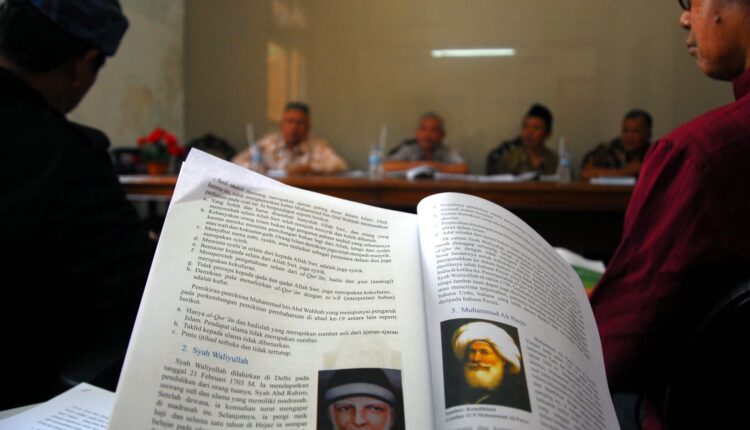Synergize to Counter the Entry of Radicalism into the World of Education
By: Alif Fikri)*
Radicalism is still a challenge for the nation because there are no elements of society that are immune to the virus, including the educational environment. The public is asked to work together to prevent the spread of radicalism that can target students and hinder Indonesia’s 2045 gold target.
National Education Observer Darmaningtyas assesses that the emergence of radicalism on campus is the responsibility of all parties, so that efforts to improve it cannot only be imposed on campuses, but educational institutions as a whole, starting from junior and senior high schools.
Darmaningtyas also regrets that there are higher education institutions that tend to underestimate the problem of radicalism in the campus environment. According to him, this tends to make students hegemony by unconscious radical views. He added that the main key to unraveling the issue of radicalism in educational institutions is how to implement the values of Pancasila properly in the educational environment.
After the New Order, the radicalism movement became more and more open and targeted campuses, as a basis for spreading indoctrination among academics and students regarding a narrow understanding of religion. Their movement started from forming a study group with tutors from among themselves, both from lecturers and senior students. It doesn’t stop there, it turns out that their movement also controls the majority of student organizations such as BEM, Himpro, and other organizations.
In preventing radicalism, it is necessary to optimize the role of formal and non-formal educational institutions, including in universities, in an effort to prevent and find quick-term solutions. Prevention efforts are through dialogue and education. In this effort, prevention in the early form of radicalism can be carried out with useful activities, such as educational, creative, innovative, productive and cooperative activities based on the 1945 Constitution, the Unitary State of the Republic of Indonesia and Bhineka Tunggal Ika.
Of course, colleges have a lot of homework to do. In an effort to prevent radicalization in the campus environment, it is now appropriate for all aspects of activities to be involved. Students can certainly be given national training in the hope of having a good sense of nationalism as good citizens.
By establishing good relationships between students and lecturers, alumni and student organizations both intra-campus and extra-campus, lecturers who are parents on campus must be able to direct that the activities carried out by students are always in the corridor of understanding in accordance with the principles of the state and religion.
On a different occasion, the Head of the Counter Propaganda Sub-Directorate of Prevention Deputy I BNPT Colonel Pas Sujatmiko said all campuses had the same opportunity to be influenced by recruitment to become part of radical groups. So that campuses in Indonesia are not influenced by the narrative of radicalism, it is necessary to emphasize national values to the academic community. And always be aware of these threats.
Preventing the entry of radical ideas is certainly not only the task of the government, BNPT and Densus 88, but also needs to involve a number of agencies and institutions, including schools, madrasas and universities. In addition, the community, down to the smallest environment in the family, needs to be involved in anticipating radical actions.
The entire civitas in the scope of schools and campuses, it is necessary to inculcate the values of humanity and tolerance for others so that students are not easily influenced by radical ideas that teach ways of violence and foster intolerance towards differences and pluralism in Indonesia. With mutual concern, the spread of radicalism in the campus environment is expected to be suppressed.
)* The author is a contributor to Pertiwi Institute
